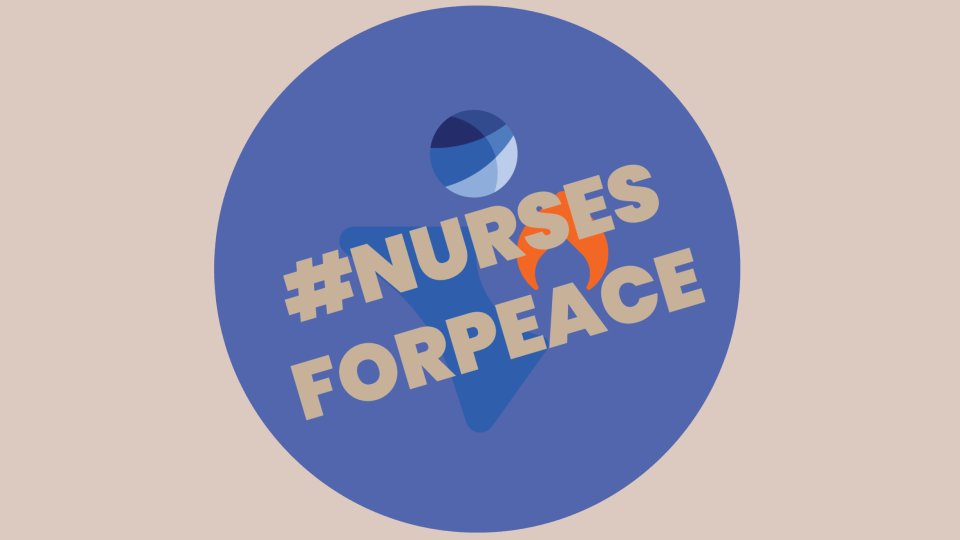ICN champions nurses’ unique role as promoters of peace at influential WHO Member State meeting

International Council of Nurses (ICN) Chief Executive Officer Howard Catton has updated a meeting of more than 70 World Health Organization (WHO) Member States on the unique role nurses are playing in the promotion of peace in societies everywhere.
WHO’s Constitution states explicitly that the health of all peoples is fundamental to the attainment of peace and security and is dependent upon the fullest co-operation of individuals and States.
Mr Catton was presenting ICN’s #NursesforPeace campaign, with a focus on the wider role of nurses in promoting peace, at the WHO Member States and Observers’ Consultation on its Global Health and Peace Initiative (GHPI) in Geneva last week.
He told the meeting that the #NursesforPeace campaign was born out of the conflict in Ukraine and the huge outpouring of solidarity from nurses around the world, and their desire to support colleagues who are working in wars, conflict zones and disasters. The donations collected are being used to fund essentials of daily life, medical equipment and training for nurses who are working on the front lines.
Speaking after the meeting Mr Catton said: “As #NusesforPeace developed into a humanitarian fund supporting nurses in other parts of the world, such as Afghanistan, Myanmar and Yemen, a strong connection was made between the work of all nurses and peace. It became clear that nurses’ holistic approach and their concern for people’s wellbeing is also a bridge to peace: through their work, nurses address the root causes of ill health and the risk factors that lead to conflict. Nurses are regarded as the most trusted professionals, and there are 28 million of them around the world, all working for patients within a professional code of ethics.”
He continued: “When nurses are supporting homeless people’s health needs, they see the connections to other issues, such as family breakdowns, loss of jobs, poverty and mental health crises. These inequalities and the social breakdown that ensues can lead not only to poor health, but to tensions and conflict in individual people’s lives, and also in communities, creating divisions from which resentment, conflict and separation can grow.
‘When supporting the health of migrants and refugees, issues of discrimination, marginalization, isolation, sexual violence and human trafficking are often revealed. And when nurses are working in remote and rural areas, they may be the only health professionals that people ever see. They witness how a lack of information and education can lead to health and community breakdowns. But because of their trusted position within communities, nurses can play a critical role in bringing people together, building the wider partnerships and relationships that are the foundations not just of peace, but of community cohesion as well.”
Mr Catton gave examples from the BBC StoryWorks Caring with Courage series of where nurses are making a dramatic difference to vulnerable people’s lives, including in a wound-care clinic in a refugee camp in Lebanon, in nurse-led clinics in inner city areas of the United States and Australia, and on a train that delivers comprehensive care to people in remote areas of South Africa.
The BBC series producers identified that nursing extends much further than is commonly realised, labelling the advanced nurse practitioners they filmed as innovators, game changers, coordinators, integrators and guides.
Mr Catton said that by looking at the causes of vulnerability, nurses are directly addressing the health aspects included in the Sustainable Development Goals. And by helping refugees and displaced persons with their presenting health problems, nurses are able to tackle their underlying health issues, piece together their previous medical histories, and start to facilitate their integration into a new society or environment.
Mr Catton said: “Nurses are trusted, and the advice and information they give is recognized as dependable and accurate, which means it can dispel the sort of misinformation that can lead to distrust and conflict.”
The WHO Director General is due to report on the development of the Global Health and Peace Initiative to the 154th session of the WHO Executive Board in January 2024.